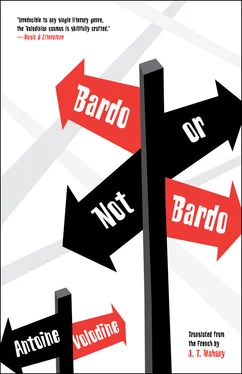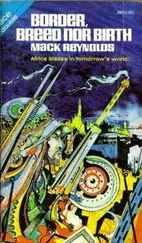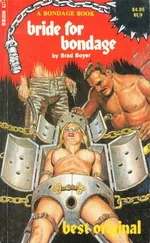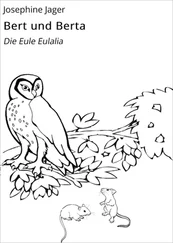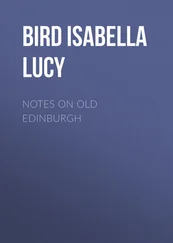Becky Glomostro tries to oppose this sabotage, but, as she holds no esteem for the deceased, she lets herself be dragged into the cruel ceremony. She in turn addresses Hoïgo Iougorovski with words meant to mislead him. She is less obsessed with rape imagery than Verena Lang and lets her imagination run free. “Iougorovski,” she proclaims, “you are no more, you are in the ground. You are suffocating, you are struggling. You are a dust-sick bat, you would like to flit about but you have forgotten how to detach yourself from the dark ground. Your extremities twitch miserably. You will never get back up.”
To give theatrical weight to their curses, Becky Glomostro imitates Hoïgo Iougorovski’s voice. She comically exaggerates his terror, his spinelessness. She gives him grotesque, laughable attitudes. Hoïgo Iougorovski tries to cajole his persecutrices by offering them some dollars. He offers to intervene in their favor with the bloodthirsty divinities. Thanks to him, he claims, they’ll live like queens on the other side.
The situation has some humor, but remains fundamentally violent. The watch night takes on a fantastical tone. Becky Glomostro and Verena Lang leave reality behind, they enter the world of the dead and become the infernal instruments Hoïgo Iougorovski forged for himself by leading a criminal life. The reading of the Bardo Thödol at the deceased’s bedside transforms into a trial, then an irrational shamanic dance. Toward the end, the lights go out, the refrigerators stop humming, and it’s unclear if the two women haven’t actually fallen into a demonic universe where they must accompany the dead man or those like him in eternal castigation.
In his direction notes, Bogdan Schlumm insists on the physical traits of his characters.
“At the start, everything is normal and empty,” he says. “There’s nothing troubling about the mortuary’s atmosphere. We are in a world of birds. Becky Glomostro, and then Verena Lang, appear nude, their bodies covered in feathers. Becky Glomostro has a pearl-gray face, very pleasant to behold, above which rests an almost-phosphorescent emerald-green crest. She has amber eyes, still embellished by two downy circles, her hands are dark gray and very clean. Verena Lang is black, shiny, with the perimeter of her eyes dappled with electric blue, and on her stomach and back, gold-brown speckles. Her eyes are yellow, a mad and admirable yellow.”
There you have it. If you would like, you may now continue on.
Schlumm entered the cellar like a newborn, head first and chest scrunched, and immediately saw Puffky running toward him. At first, he thought the other man, deprived of visitors for ages, was coming to wish him welcome. In reality, if Puffky was holding out his arms toward Schlumm, it wasn’t because he intended to warmly embrace him. He wanted to take advantage of the opening to reintroduce himself into the outside world. He wanted to shove Schlumm aside and get out of there.
“No,” said Schlumm. “None of that. Cut it out.”
He pushed Puffky back and closed the door after a few blind gropes. The strike plate emitted a voracious screech, then this side returned to silence.
The light was of an inferior quality. Even compared to a weak twilight, it was barely anything. It filtered in from nowhere, it fluttered from nook to nook, and it reluctantly penetrated the eye’s depth. Schlumm felt like he was looking at Puffky through a carbon filter. He saw Puffky trying to get around him to the already-closed door, and he shoved him once more. As if he were doing a jiu-jitsu demonstration, he finished with a twist of the fist and a leg sweep.
Puffky fell to the ground, sending up a plume of soot, and snickered. His eyes were remote, and his head — reproduced time and again on interior bulletins within the Organization, accompanied by acrimonious comments on both his character and philosophical vaticinations — had seen better days. Puffky was exhibiting here this half-idiot face and he was snickering. For a moment, the reasons for his glee weren’t apparent, but he still fixed his intense gaze on a point behind Schlumm’s neck, an intense, malevolent gaze, and Schlumm jumped, suddenly convinced that he was threatened by something hairy. The point was at a spider’s height. He turned around quickly.
“What the,” he said.
In the space of a second, he had braced himself to smack away a giant tegenaria, or worse. But there was no tarantuloid creature tensed on the black wall or swinging within reach of his skull.
The wall, bare and oily, seemed to be made of blocks of coal. No living thing could have clung to or hung from it. After a moment of fruitless observation, Schlumm forgot the spider hunt and cast his gaze toward the place where an opening had allowed him to pass a few seconds ago. Any handle or lock could no longer be seen. Perhaps that detail, that absence, had been the source of Puffky’s troubling jubilation. The door must have been built with a similar material as the walls. It fit into its frame so hermetically that it was like it had melted into the masonry. There was no other discernable solution.
When he had applied to be the one to go down to Puffky, Schlumm had been warned that the mission would be full of anomalies and risks. It would be a nightmare, respites few and far between. Be careful, he’d been told. Always keep your guard up. Never let it down. He explored the wall with his palm, looking for the vanished door, looking somewhere for a reassuring cleft, and, finding nothing, he returned to Puffky. He had gotten back up and was dusting himself off. He wasn’t snickering anymore, though he kept up the psychotic monk’s face that Schlumm, by dint of consulting the Organization’s press, had ultimately come to enjoy. There was a photo of Puffky beneath each of the articles denouncing Puffky’s dissident ravings. This portrait was meant to provoke a feeling of unease and even rejection in the reader, so that from first contact with Puffky, one’s judgment would be unfavorable.
From the Organization’s point of view, Puffky’s ideas were inadmissible. What ideas? Well, for example, the incompleteness of death. Or the ugliness of transmigration. Or the uselessness of prayer during the journey, the ineffectuality of religious knowledge. Or the absolute improbability of an encounter with the Clear Light. And, finally, the infinitesimal odds against anyone being reborn. That kind of blasphemy. Schlumm had skimmed through all that. Not particularly drawn to theoretical research, he had never had any decided opinions on these questions. The polemicists wielded their arguments with an unbearable erudition. Schlumm was mainly interested in images. In illustrations appearing outside the text. Despite his basic mystical education, he understood neither what Puffky said nor what the authorities rebuked him for either saying or not saying. He preferred to examine Puffky’s shifty features, his abnormally-distant eyes, his cheeks that had been sculpted by many tics, and, when the photographer had gotten a full-length shot of Puffky, his gnarled hands that nothing would ever ungnarl. To prepare himself for his trip, he examined it all with curiosity for hours.
In the thick penumbra of the cellar, it was difficult to determine whether the photographs had caricatured or fairly represented their model. At that moment, Puffky was brushing his clothes, rags through which snippets of his thin flesh were visible. He was avoiding raising his eyes to meet Schlumm’s, and, suddenly, he lunged at Schlumm with a wooden plank.
“I don’t belong to the Organization anymore,” he shouted. “Beat it, Schlumm! Get out of my way!”
Schlumm hadn’t seen Puffky pick up the length of wood, but he worked out the weapon’s trajectory. The plank was going to strike him like a saber.
Читать дальше
